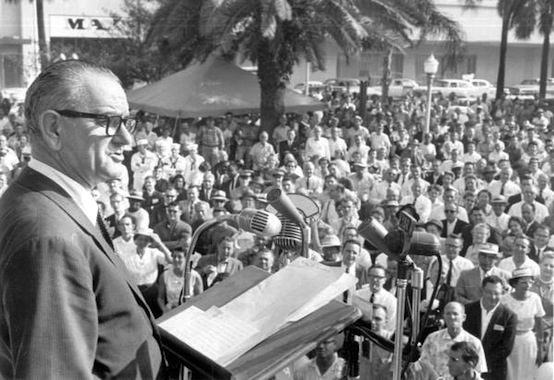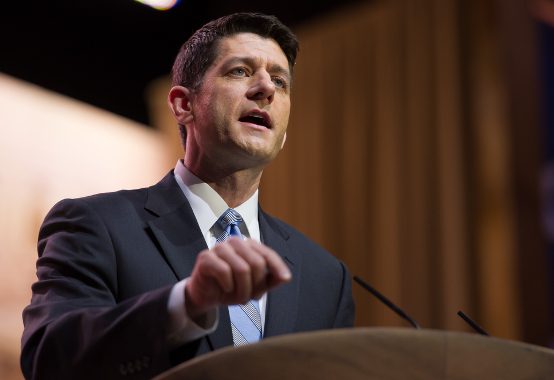The Legend of LBJ’s Power of Persuasion

The New Yorker’s Ryan Lizza argues for a realistic appreciation of the limits of presidential power:
Lyndon Johnson’s celebrated legislative achievements were in reality only a function of the congressional election results—not his powers of persuasion. In 1965 and 1966, after the enormous Democratic gains of the 1964 election, Johnson was a towering figure who passed sweeping legislation. In 1967 and 1968, after he lost forty-eight Democrats in the House, he was a midget.
There are a couple wrinkles to that: 1) Many of those Democrats were southern conservatives who really did need to be wrangled and arm-twisted. In the case of the era’s landmark civil rights legislation, Johnson needed the help of liberal Republicans. 2.) LBJ’s “midget” status was a consequence of the unfolding disaster in Vietnam. The lesson, perhaps, is that presidents are not utterly powerless over congressional or partisan arithmetic; their actions, as well as luck, can affect that arithmetic.
Still, Lizza is mostly right. And he might have added that LBJ’s mid-’60s legislative triumphs also took place in a context of a booming economy and a federal government with the opposite of revenue troubles. Historian Jeffrey Helsing writes:
The economy’s expansion from 1964 through the first half of 1965 was unprecedented. This expansion coincided with the president’s War on Poverty and the passage of much of the Great Society legislation. Greater revenue was brought into the federal treasury and the federal budget had a surplus in the first half of 1965. The economic outlook was very rosy, and no obstacles, foreign or domestic, seemed in sight.
Such a fiscal situation, for Johnson, was the cherry on top of partisan dominance in Congress. Or maybe it’s vice versa: if we consider the example of the mid-’90s, one could plausibly argue that projected budget surpluses greased the skids for bipartisan compromise in the Clinton-Gingrich era. If Clinton were president, and Gingrich the Speaker, today, I very much doubt we’d see anything different than the current state of paralysis in Washington.
